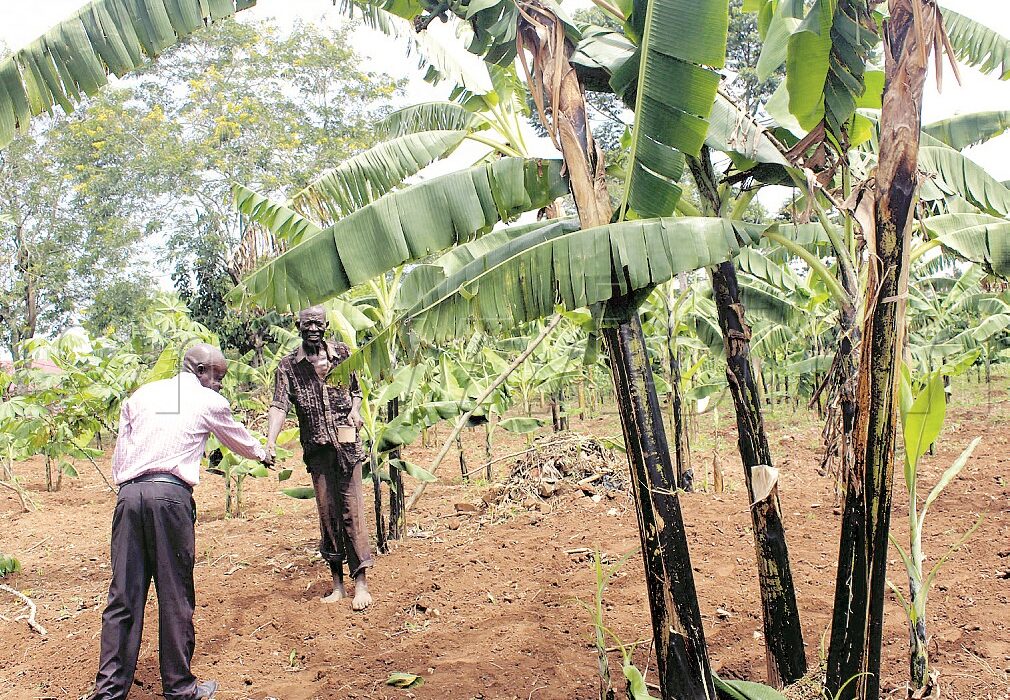(This article was first published in the New Vision on July 20, 2022)
By George Bita
A few days after his deployment to Namadope Primary School in Luuka district as the headteacher in 2019, Fredrick Balikoowa studied the school’s pupil records, going back a couple of years.
He noticed that at least four girls dropped out of the school each term. When he asked for an explanation, teachers told him that many of the learners were girls, who chose to stay at home to manage their menstruation cycles.
The girls did not have access to sanitary pads at school, and after missing lessons for a week every month and could not catch up with the rest of their classmates, they dropped out, the teachers said.
On top of that, the school’s sanitary facilities were dilapidated, with broken windows and gaping holes in the walls, which made it difficult for girls to manage menstruation cycles in private.
Balikoowa sought a solution to this challenge so as to keep menstruating girls in school. He says he approached LIDI-Uganda, a non-governmental organisation, which constructed two separate sanitary facilities for boys and girls at the school.
Unlike the old facilities, the new two pit-latrines, which were handed over to the school in 2020, have guard rails and wheelchair ramps, which make them accessible to children with disabilities.
The recently built rain harvesting tanks keep the pupils supplied with water for use after visiting the sanitary facilities.
Balikoowa says his administration formed a partnership with Child Fund, an NGO, which supplies the school with free sanitary towels.
He explains that the population of females has increased to 335 from 204 in 2019, partly because girls now have access to sanitary towels. Also, the new sanitary facilities allow the girls to manage their menstruation cycles better. Currently, the school’s population, which was 400 in 2019, has increased to 663.
“Girls lost a lot of time because they stayed at home for several days. They eventually gave up on school,” he adds.
But there was another problem. The school did not provide lunch to pupils and Balikoowa learnt from the parents that girls would engage in sexual relationships with men, who gave them money to cater for their lunch at school.
To address the problem, Balikoowa mobilised the pupils to grow food on two acres of the school land in 2020.
“The garden is now our source for maize and beans and we are also growing sweet bananas. This is also helping learners to acquire gardening skills, which are important for them even after school,” he says.
As a result, Balikoowa explains that pupils no longer miss afternoon classes since they are served lunch at school.
Feeding Programme
To complement this intervention, before the schools closed to contain the spread of COVID-19 in 2020, Balikoowa convened a Parents-Teachers Association (PTA) meeting to discuss his proposal to serve candidate pupils lunch and supper.
He wanted the learners to stay at school longer after the other classes had ended, to prepare them for the Primary Leaving Examinations.
During the meeting, the parents and guardians agreed to provide 7kg of maize grain and 3kg of beans for each Primary Seven pupil per term. The parents also agreed to provide 3kg of maize grain for each pupil in other classes and sh2,000 per learner to cover the cost of milling the maize.
In terms of co-curricular activities, Balikoowa says his administration has established a reward system for the best performers.

These, he adds, are rewarded with clocks, wrist watches, exercise books, bags for carrying books, among others. The reward scheme, according to the headteacher, is encouraging competition and talent development.
“It is our responsibility to make these children engage in co-curricular activities. We give them an opportunity to engage in these activities for one hour after classes every day,” he adds.
Balikoowa explains that the school has also procured sports equipment and also facilitates its pupils to participate in inter-school contests.
During the COVID-19 lockdown, which lasted two years, Balikoowa says he mobilised teachers to deliver to 80 Primary Seven pupils learning materials provided by the Government.
When the schools reopened early 2022, he says he visited parents in Namadope, Buyubu and Budooma villages and urged them to send the children back to school.
He also explains that he asked the candidate class to return to school before others in order to create more time for them to study and to protect girls from defilement.
Balikoowa advises fellow teachers to put God above everything else, create time for children to engage in co-curricular activities and also promote teamwork at school.
Fact File
- 1983: Completed primary education at Ikonya Primary School in Luuka district
- 1987: Finished O’level at St. James SS in Jinja district.
- 1991: Attained a Grade III certificate from Kamuli Primary Teachers’ College
- 1991 to 2000: Taught at Buyemba Primary School in Luuka district
- 1999: Earned a diploma in primary education at Kaliro National Teachers’ College
- 2000: Promoted to deputy headteacher and deployed to Buyemba Primary School in Luuka district.
- 2006: Completed a Bachelor of Arts degree in education at Ndejje University
- 2017 to 2018: Deployed to Ikonya Primary School as deputy headteacher
- 2019 to date: Headteacher Namadope Primary School
Others Speak Out
Aisha Kagoya, school management committee
The provision of sanitary towels has enabled girls to manage menstruation periods while at school.
Samalie Mukisa, Primary Six pupil
The availability of water at school keeps the sanitary facilities clean.
Thomas Ikomba, teacher
The agricultural project has allowed the school to utilise its formerly idle land to feed the pupils.
Francis Kamyuka, Luuka district education officer
The district administration has facilitated the school to participate in district level competitions.
Wilber Bagise, member of Parents-Teachers Association
Balikoowa has cultivated a good relationship with parents in the community, which has improved the school’s image.

